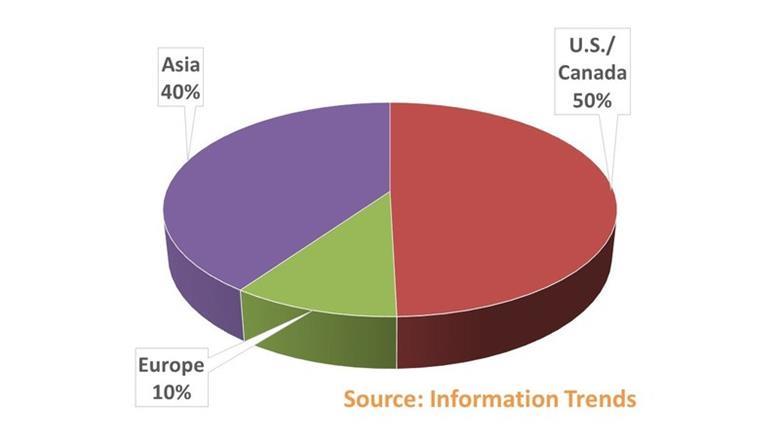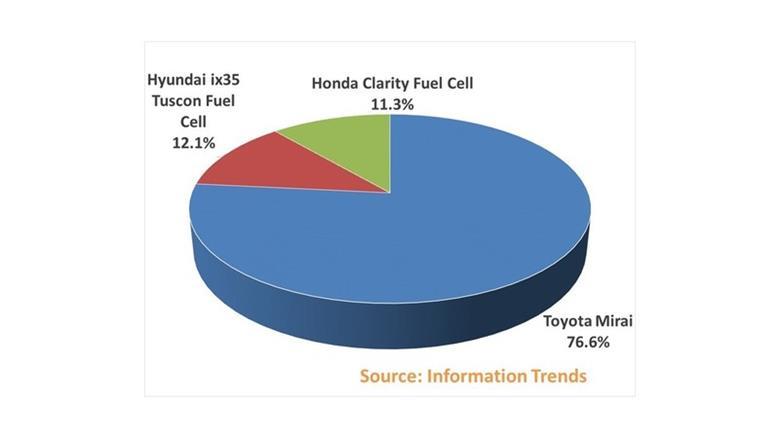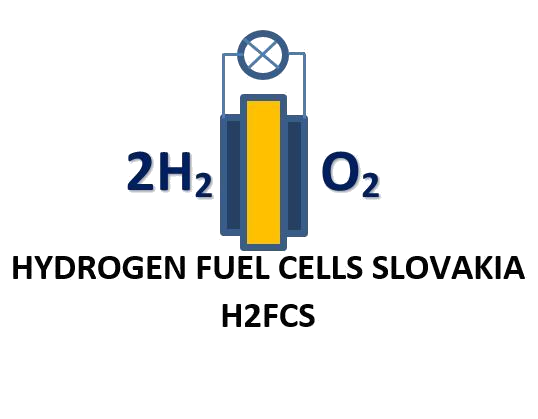More than 5,500 hydrogen (H2) fuel cell cars have been sold since they were launched and the number will easily reach 6,000 by the end of 2017, Information Trends said.
A report entitled ‘Hydrogen Fuel Cell cars: A Global Analysis’ has been issued. Close to 2,400 fuel cell vehicles were sold in the first three quarters of 2017.
Naqi Jaffery, the lead author said the sales activity is striking because a robust H2 fuelling infrastructure is not widely available yet.
He continued, “By 2021, at least 10 brands will be selling H2 fuel cell vehicles. By this time, H2 fuelling infrastructures will be sufficiently developed in several regions to allow large-scale H2 mobility.”
“Brands that will be competing for market share by 2021 include Toyota, Lexus, Hyundai, Kia, Honda, Mercedes-Benz and BMW. Other entrants in this space include Tata Motors, Pininfarina S.p.A (owned by Mahindra & Mahindra) and Riversimple and VW. More companies will join the bandwagon after 2021.”

The report said the US has generated 50% of the global H2 fuel cell vehicle sales so far. Europe has been able to muster only 10%, even though Europe has more H2 stations than the US.
This incongruity stems from the fact that H2 stations in Europe are spread out across 15 countries. In the US, they are concentrated in the San Francisco Bay Area and Los Angeles and Orange counties in the state of California.
Japan has the most H2 stations, and vehicle sales in Japan and Korea have constituted 40% of the global sales.
In terms of brands, Toyota Mirai has swept the market with over three-quarters of sales. The rest of the sales are divided between Hyundai ix35 Tucson Fuel Cell and Honda Clarity Fuel Cell.

